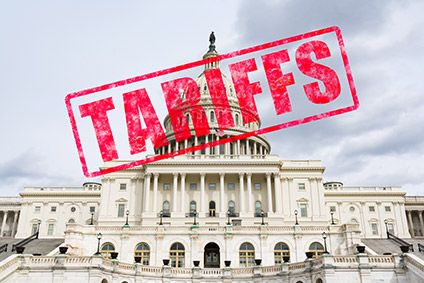News earlier this month that US President Donald Trump had decided to delay imposing tariffs on vehicles and automotive components for six months came as a massive relief to automakers around the world, from South Korea and Japan to Germany.
Share prices of German automakers such as Mercedes-Benz, BMW and Porsche, jumped by 3% and more on the news. According to the European vehicle manufacturers association (ACEA), a total of 1,155,000 cars were exported to the USA from the EU in 2018, worth over EUR37bn. Most of them were from Germany. The US exported 268,000 vehicles in the opposite direction in the same year, worth some EUR5.5bn, mostly cars made in the US by German automakers, but also including cars produced by Fiat-Chrysler and Japanese and US automakers.
Japanese and South Korean automakers, which were also threatened by the tariff hikes, also saw their shares jump by up to 5-6% immediately after the news was released. Japan exported around EUR37bn worth of cars to the USA last year while South Korean automakers, mainly Hyundai and Kia, exported around EUR12bn worth in 2018.
Restricting access to the US market may have created a perfect storm for the global automotive industry.
The issue of import tariffs has come at a critical time for the global automotive industry. Most vehicle manufacturers have suffered significant sales and earnings declines in the last year due to the sharp market slowdown in China and also due to weakening sales in Europe. Restricting access to the US market may have created a perfect storm for the global automotive industry.
For the US, which has just hiked import tariffs to 25% on some US$200bn worth of annual imports from China earlier this month, opening up a new front in its trade war with seemingly most of the rest of the world may have been a step too far – for now at least. Add to this the growing security issues in the Middle-East and Far-East and the US could find itself very isolated in the world.
The tariff delay is widely seen as just a temporary reprieve, but the prospect of import tariffs remains a real threat – at least until the end of the year while trade talks take place. But as the Trump administration has already demonstrated, most recently with China, its threat to impose tariffs should not be taken lightly.
While the European Commission had prepared a long list of retaliatory measures on US goods and services entering the EU, few would benefit from an all-out trade war between the US and the EU.
A broad-based trade war would not be good for the US economy either, and by default the global economy would also suffer.
The Japanese and South Korean governments are in a much weaker negotiating position. They cannot dictate production strategies to their domestic carmakers, even though the US government would like to see much more localisation of vehicle models in the USA combined with greater efforts to export vehicles back to Asia and to third countries.
Japanese automakers in the last few years have lifted investments in the US to help appease the Trump administration, seemingly with little effect so far.
Opening up their markets further to US agricultural products, which would also help appease the Trump administration, would be immensely unpopular in all countries concerned.
One positive outcome of the tariff delay is that it brings us closer to next year's presidential elections in the US, and the possibility of a new administration that is less hawkish on trade issues.
See also: New US auto related tariffs on hold for six months







